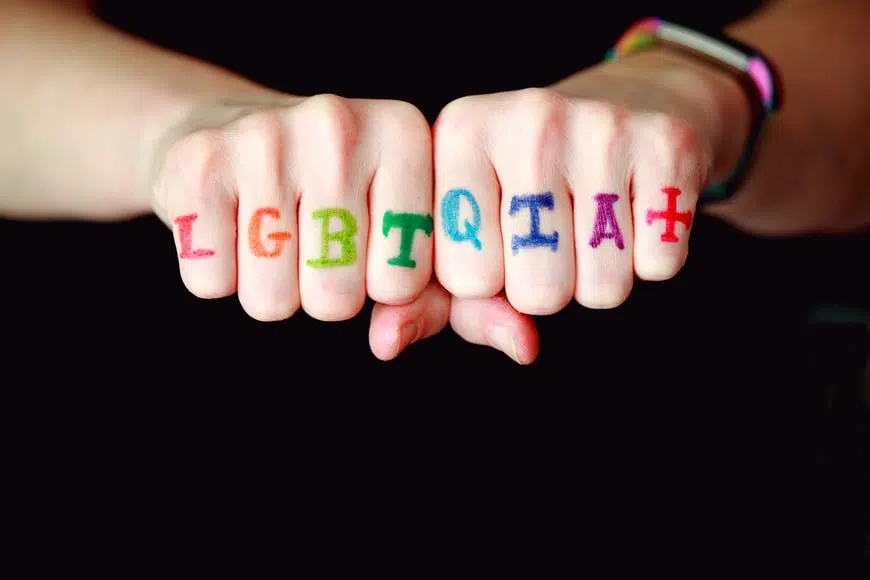LGBTQ+ victims and survivors can face barriers which make it difficult to disclose child sexual abuse, access support and form adult relationships, according to a report by the Independent Inquiry into Child Sexual Abuse.

The report by the Inquiry found many people, including professionals, continue to believe and act on harmful myths and stereotypes about LGBTQ+ victims and survivors. Most victims and survivors the Inquiry spoke to said they experienced confusion, frustration or difficulty with understanding their own sexual orientation or gender identity as a result of the sexual abuse and for many this was compounded due to the myths, stereotypes and attitudes in society.
One LGBTQ+ victim and survivor said: “Stigma and myths have been very prominent…There is far too much emphasis on the survivor and victim blaming and little understanding of LGBTQ+ lived experiences. This leaves the survivor feeling unheard and disheartened which makes seeking help much harder.”
The Inquiry heard that:
● Some victims and survivors were told that their gender identity or sexual orientation resulted from the child sexual abuse they experienced, which severely damaged their self-identity and mental health.
● Some victims and survivors were told that they were sexually abused because of their sexual orientation or gender identity (‘you brought it on yourself’), including vulnerable LGBTQ+ children using online spaces to explore their sexuality.
● We also heard the myth that ‘people who have been abused go on to abuse’ can stop both gay and straight men from reporting or disclosing having been sexually abused because they fear being thought of as ‘paedophiles’.
Furthermore, because LGBTQ+ people are seen as ‘different’ from the norm, it can be more difficult to disclose and report child sexual abuse, which has led to under-reporting of child sexual abuse by LGBTQ+ victims and survivors.
The report also found some victims and survivors have had the ‘LGBTQ+’ label applied to them as a result of the gender of their abuser, rather than being allowed to define themselves. Many men also said that when they were younger they had been accused of ‘inviting’ sexual abuse because they showed an interest in other men by being stereotypically ‘effeminate’.
One LGBTQ+ victim and survivor told the Inquiry: “I’m in my late 50s ... My generation grew up being told to keep quiet. As a younger person I was told the abuse was a result of being homosexual along with all the negative language being used at the time.”
IICSA also heard evidence around barriers such as:
● The continuing trauma of past criminalisation of homosexuality, Section 28, the HIV/AIDS epidemic and societal homophobia, which has particularly affected gay and bisexual men.
● Internalised homophobic shame and stigma, preventing victims and survivors who were sexually abused as children from disclosing to anyone.
● Victims and survivors being forced to explore and understand their sexuality or gender identity before they were ready, and being deeply traumatised through being forced to come out (as LGBTQ+) under pressure.
LGBTQ+ victims and survivors often find it difficult to find relevant support services and therefore often have to rely on personal recommendation rather than professional referral.
Many victims and survivors told the Inquiry how essential professional support is, especially in cases where victims and survivors cannot depend on traditional support networks such as family, friends, religion or work colleagues, due to being excluded or hiding their sexual orientation or gender identity.
The report identifies that there is a need for specialised, high quality training and education for professionals working with LGBTQ+ victims and survivors in order to overcome cultural myths and stereotypes which can prevent victims and survivors from disclosing sexual abuse and accessing services. Training and education needs to specifically focus on being trauma informed and LGBTQ+ affirming.
The report concludes that we live in a heteronormative and cisnormative culture, with a deeply homophobic history. This continues to affect LGBTQ+ victims and survivors, particularly those who are older, and those who are from religious or cultural background which do not accept the legitimacy of LGBTQ+ sexual orientations and gender identities.
The Inquiry’s Final Report is due to be completed later this year.
Engagement with lesbian, gay, bisexual, transgender and queer/questioning + victims and survivors

